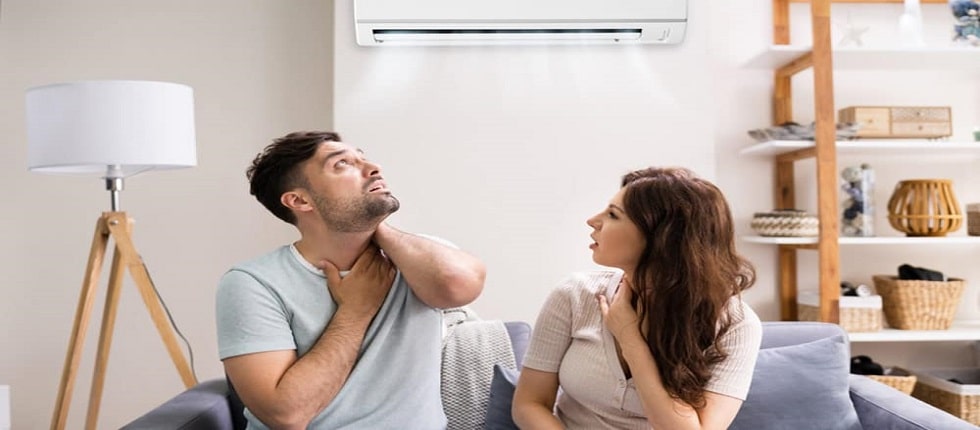During the hot summer months, a properly functioning ducted air conditioning (AC) system is essential for maintaining a comfortable indoor environment. However, there may be instances when your ducted AC is not producing sufficient cooling, leaving you feeling frustrated and uncomfortable. In this article, we will explore some possible reasons why your ducted AC system may not be cooling effectively and provide suggestions on how to address these issues.
Leaking Ducts
Leaking ducts can result in cooled air escaping before it reaches the intended rooms, causing a drop in cooling efficiency. Look for loose connections, disconnected joints, or damaged sections of the ducts. If you find any leaks, consider contacting a professional HVAC technician to seal or repair them. Properly sealed ductwork ensures that the cooled air is effectively delivered to the different areas of your home. You should call experts such as air conditioning Sydney experts for proper installation of ducted AC to avoid leaky ducts.
Clogged or Dirty Air Filters
One of the most common reasons for reduced cooling efficiency is clogged or dirty air filters. Over time, dust, dirt, and debris can accumulate on the filters, obstructing airflow and reducing the system’s ability to cool effectively. This results in insufficient cooling in your home. Check the air filters and clean or replace them if they are dirty. It is recommended to clean or replace the filters every three months or more frequently if you have pets or allergies.
Blocked or Restricted Air Vents
Another reason for inadequate cooling could be blocked or restricted air vents. Ensure that all the air vents in your home are open and unobstructed by furniture, curtains, or other objects. Blocked vents can disrupt the airflow, preventing cool air from circulating properly and reducing the overall cooling performance of your AC system.
Improper Thermostat Settings
Incorrect thermostat settings can also lead to insufficient cooling. Make sure that your thermostat is set to the desired temperature and that it is in cooling mode. Check the thermostat’s batteries and replace them if necessary. Additionally, ensure that the thermostat is located away from direct sunlight or heat sources, as this can affect its accuracy and lead to temperature inconsistencies.
Insufficient Insulation
Inadequate insulation in your home can contribute to reduced cooling efficiency. Insufficient insulation allows heat to penetrate your home, making it harder for your AC system to cool the space effectively. Check your home’s insulation, particularly in the attic, walls, and windows. Consider adding insulation or upgrading existing insulation to improve energy efficiency and enhance the cooling performance of your AC system.
Dirty Evaporator or Condenser Coils
Dust and debris accumulation on the evaporator and condenser coils can hinder heat exchange and reduce the cooling capacity of your AC system. Use a soft brush or fin comb to remove any debris from the coils. If the coils are heavily soiled, it may be best to contact a professional technician for a thorough cleaning.
Refrigerant Issues
Insufficient cooling can also be caused by low refrigerant levels or refrigerant leaks in your AC system. Low refrigerant levels prevent the system from adequately absorbing heat, resulting in reduced cooling capacity. If you suspect a refrigerant issue, it is crucial to contact a professional HVAC technician such as ducted air conditioning Sydney experts. They can inspect your system, identify any leaks, and recharge the refrigerant to the appropriate levels.
Aging or Inefficient AC System
If your ducted AC system is old or inefficient, it may struggle to provide sufficient cooling. Older systems may have worn-out components, reduced efficiency, or outdated technology, leading to inadequate cooling. In such cases, upgrading to a newer and more efficient AC system might be the best solution. Consult with a professional HVAC technician to evaluate your current system and recommend appropriate options for replacement.
Heat Gain in the Home
Excessive heat gain in your home can make it challenging for your AC system to keep up with cooling demands. Factors such as sunlight exposure, inadequate insulation, and inefficient windows can contribute to increased heat inside your home. Consider implementing strategies to reduce heat gain, such as using window coverings, installing reflective films on windows, and sealing air leaks.
Wrap Up
If you have tried the above troubleshooting steps and your ducted AC system is still not producing sufficient cooling, it is advisable to seek the assistance of a professional HVAC technician. They have the expertise and tools to diagnose and address complex issues with your AC system, ensuring optimal cooling performance and comfort in your home. Remember, regular maintenance and servicing of your ducted AC system are crucial to prevent cooling problems. Schedule annual maintenance with a qualified technician to keep your system in good condition, Also, the trusted technician can address any potential issues before they escalate.





